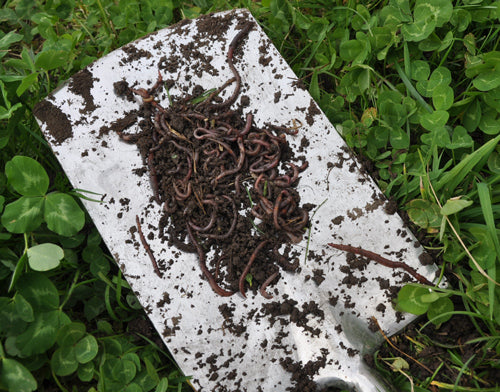Fascination About North Carolina Worms
Fascination About North Carolina Worms
Blog Article
The Ultimate Guide To North Carolina Worms
Table of ContentsHow North Carolina Worms can Save You Time, Stress, and Money.Not known Details About North Carolina Worms The Definitive Guide to North Carolina WormsGetting My North Carolina Worms To WorkExamine This Report about North Carolina Worms
Much of the research that has actually been done has actually been brought out in southern Australia, where the environment and soils are fairly different to the NSW North Coastline. Lake James Bait. The principles developed from study on earthworm ecology can be used normally to the majority of soils and climates.In zero-till soils, where worm populations are high, water infiltration can be up to 6 times better than in cultivated soils. Earthworm casts cement soil fragments together in water-stable aggregates.
There was a close connection in between pasture productivity and overall worm weight, with some 170 kg of worms for each tonne of yearly completely dry issue production. Because earthworms do not such as soil that is also acid, alkaline, completely dry, wet, warm or chilly, their visibility is a great sign of soil conditions appropriate for plant growth.
Little Known Questions About North Carolina Worms.
Scientists have discovered that after 4 years, zero-tilled paddocks had twice as lots of worms as cultivated dirts. Shallow cultivation might not influence worm numbers. Earthworms are intolerant of dry spell and frost, and do not such as completely dry sandy dirts. They are active only when the soil is wet, and are inactive when it is completely dry.
If you do not have lots of earthworms in your soil, present some of the practices described over. Cut pasture turfs from areas with high worm populaces and transfer them to worm-free locations.

For one, they like a lot of dampness. As we've spoken about in the past, dirt that is high in raw material has the ability to hang on to means more wetness than deficient soil. They additionally favor loam, and temperature levels in between about 50 65 degrees. Sound like rather favorable conditions for the garden enthusiast, also.
The smart Trick of North Carolina Worms That Nobody is Discussing
Worms decrease soil compaction. As worms tunnel right into your dirt they open networks via the dirt, developing pores where there once was dirt difficult masses. Worms help in dirt aeration. Assume concerning the process of freshening a lawn you drill out little slivers of soil in order to make even more space for air.
When worms dig furrows, they produce perfect little waterslides to deliver water deep below. Worms counteract pH. When they consume and refine your soil, their excrement is rendered neutral in the process.

Their excrement is chalk-full of helpful microorganisms that assist to damage down natural issue in the soil. Worms consume nematodes. While there are nematodes available that are valuable to your dirt ecosystem, there are others that are hazardous. Stress not, for earthworms love to snack on the hazardous ones.
Depending on your soil kind, there are numerous nutrients that are not all set to be occupied by plants. Worm spreadings teem with easily offered nutrients such as nitrogen, phosphorus, and potassium. Taking all of these factors into consideration, what's not to like about earthworms? Follow the standards that will certainly lead you to having healthy and balanced dirt, then view the worms appear, and have a look at what they include to the soil over time.
The Main Principles Of North Carolina Worms
With the global press for sustainability and with environmentally friendly practices expanding in appeal, people are ultimately coming about and recognizing the environmental advantages of red wiggler worms and composting. In this short article, we'll review just how vermicomposting supports lasting horticulture and the environmental benefits of red wigglers and various other earthworms.
This is the except it. If you wish to review comprehensive about red shakes, we have a whole post committed to them here. Now, let's enter into the nuts and bolts of how these worms support sustainable gardening practices and profit the environment: Worm composting is like a day spa day for your dirt.
When included right into your garden soil, these castings enhance its structure, aeration, and water retention. This aids with plant development and wellness and does not require using any type of chemicals. Did you know that organic waste comprises a substantial part of land fill material? And decaying organic waste in land fills creates huge quantities of landfill gas (LFG), which is comprised of around 50% CO2 and 50% methane a greenhouse gas approximately 28 more powerful than carbon dioxide.
Getting The North Carolina Worms To Work
(https://free-weblink.com/North-Carolina-Worms_223195.html)By diverting your kitchen scraps and backyard waste into a worm composting container, you're properly lowering the amount of organic waste that ends up in garbage dumps. Forget about chemical plant foods worm castings are the real offer.

Report this page